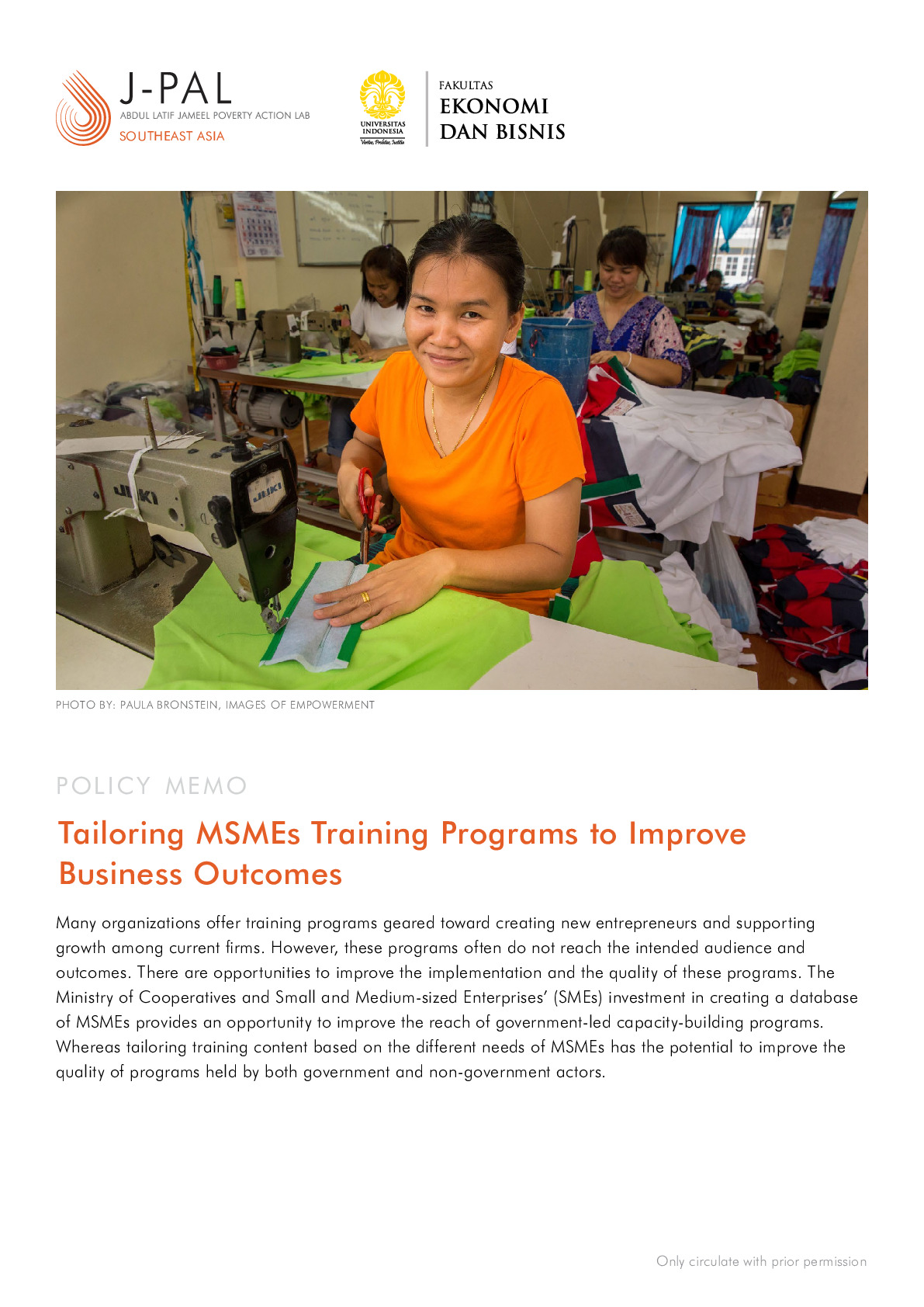Tailoring MSMEs Training Programs to Improve Business Outcomes
Micro, small, and medium enterprises (MSMEs) are an important source of growth and employment in low- and middle-income countries, including Indonesia. However, many entrepreneurs face challenges in increasing their productivity and growth due to limitations in three main areas: 1) financial access, partially due to limited information on loan options, lack of collateral, or historical credit information; 2) managerial capacity, due to lack of business management skills and innovation; and 3) market access, due to limited digital literacy and business skills to navigate online marketplace and high logistics costs.
This memo, the second in a series of three, draws on previous evaluations from developing countries to offer insights into how program owners can target program participants and tailor capacity-building content based on the participants’ needs, in order for the training to translate to improvement in business outcomes. Key policy recommendations include:
- General business training can be complemented or substituted with specific modules depending on participating MSMEs’ size and needs.
- Training that is equipped with peer and mentor support is more likely to increase the business outcomes of MSMEs.
- The effectiveness of providing consultation can improve management practices and increase productivity, but the impact on profits and sales varies depending on firm size.
For further insights access to finance and market, refer to the subsequent memos on improving MSMEs' financial access and market access.
